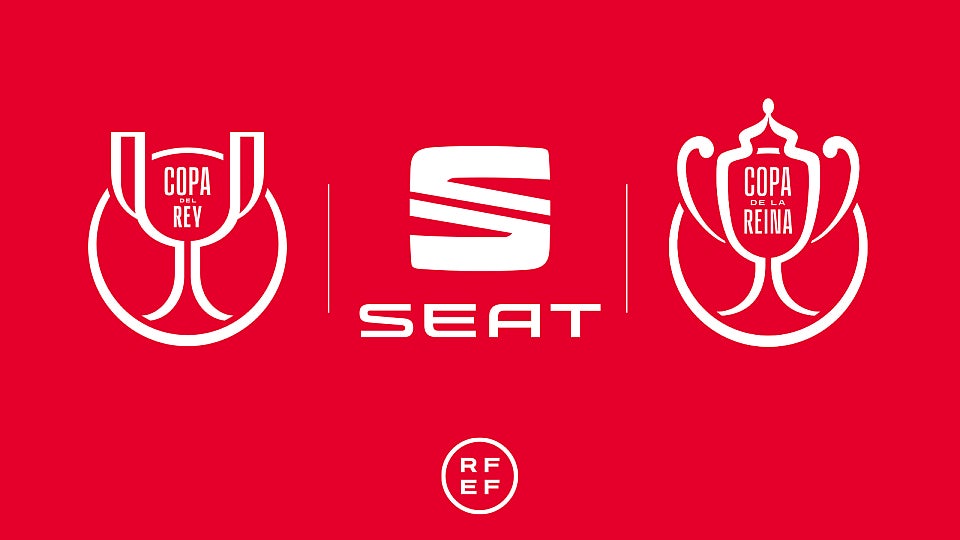
Seat, the Spanish car manufacturer, will continue as the official sponsor of Spanish soccer's Copa del Rey and Copa de la Reina domestic cup competitions after renewing its partnership with the RFEF governing body.
As part of the deal, the car manufacturer will continue to have visibility at the tournaments via media presence, physical advertising in the stadiums, and trophy exhibitions.
Seat has sponsored the Copa del Rey 14 times and the Copa del la Reina four times.
RFEF marketing director Rubén Rivera said: "The RFEF and Seat are indeed football, and for yet another year we are very proud to have this brand working with us. They have been a historic traveling companion for the Copa del Rey and the Copa de la Reina."
Cristian Calvo, marketing director of Seat Spain, added: "With the presence of our brand in both competitions, fans will be able to enjoy this sport like never before thanks to a host of activities and unique experiences."
The Copa del Rey continues with the Round of 16 stage today (January 16), with the final at La Cartuja, Seville, on April 6, while the Copa de la Reina’s final will take place on May 18.
Earlier this month, RFEF announced a partnership with Stage Front, making the US ticketing firm the official global event and hospitality partner of Spanish soccer’s men's and women's national teams.
RFEF also provisionally awarded its Video Assistant Referee (VAR) services contract to Mediapro, ending a long-running dispute with the sports rights and production company.
The court battles primarily took place while Luis Rubiales was in charge as president of the Spanish soccer federation. He has since resigned and received a three-year ban from all soccer-related activities by world governing body FIFA in the wake of his behavior at the final of the Women’s World Cup in Australia in August.



